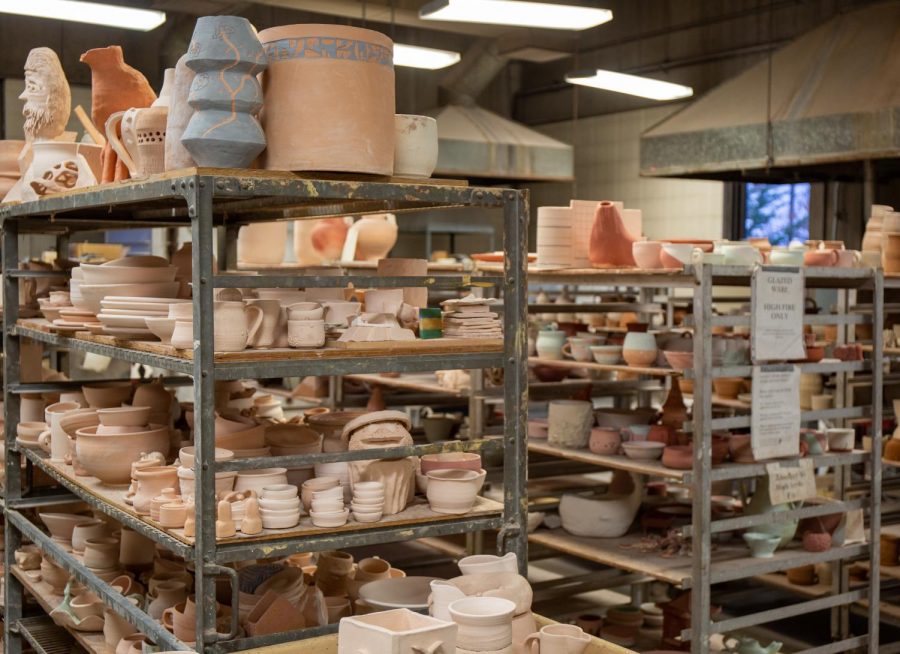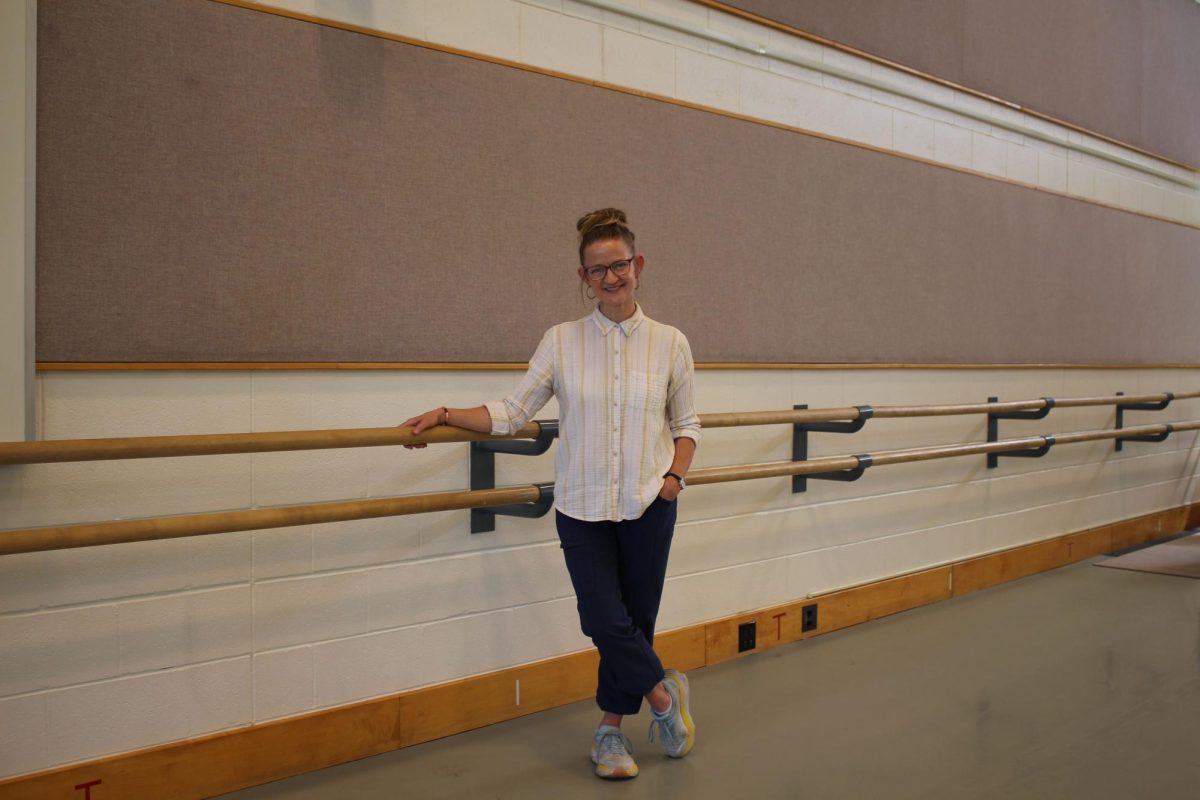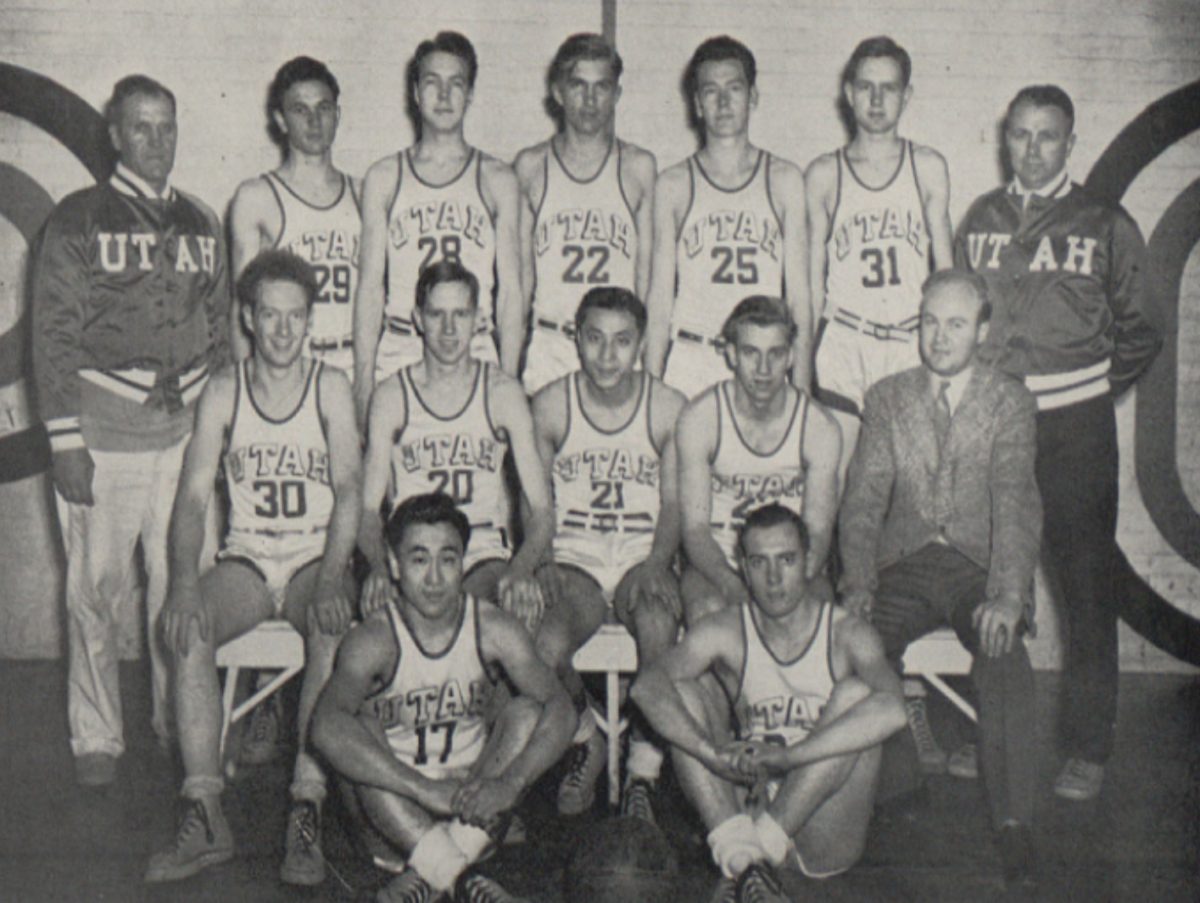McGrath: You Deserve the Bliss of Being Bad at Stuff
Outside of the art and architecture building on the University of Utah campus, November 13, 2020. (Photo by Tom Denton | The Daily Utah Chronicle)
November 27, 2020
I recently admitted to my friends something I have spent years hiding and covering up. In disbelief at my own verbal admittance, I blurted the words, “I can’t spell.” This confession preceded my entering an English exam with a spelling portion, which I knew would result in tangible proof that I can’t spell and generally lack grammatical awareness. I was nowhere near the dividing line I imagined between “good” and “bad” writing — and the more I struggled with the strenuous rules of English, the more I pushed away from them. Memories of handwritten essays returned to me with sprawling letters commanding “SEE ME AFTER CLASS” squashed my motivation to try.
I ached to write and create despite feeling like an inadequate failure who couldn’t spell “handkerchief.” I tried scrubbing my hands of old paint and washing my mouth of poorly recited poems. But after all my efforts to bury my creative thoughts deep in the grave of juvenile aspirations, I still had the innate drive to create — so I decided it was time to be bad. I wrote and wrote and then wrote some more, without any concern for the quality. And I loved it.
Especially as students, many of us view mediocrity as sinful even when it comes to our hobbies. Our sense of self-worth is often based on how much we can produce and whether it is worthy of consumption. But being “good” at something is subjective; you’ll never be good with the crippling fear of failure lurking over your shoulder all the time. So we have to learn to be content with being bad.
Start by asking yourself one question: “Am I content with failure?” If this inquiry makes your skin crawl, you may harbor the limiting belief that productivity and achievement define you as an individual. We’re obsessed with this idea of achievement, but how many gold stars can we rack up until we lose our sense of purpose and enjoyment? At the end of the day, determining our self-worth based on traditionally defined success kills the inner child who just wants to paint a damn picture.
Much of our education has taught us that love and acceptance is conditional on our successes, our grades, our performances. You could argue this is a privileged problem, but one in five college students suffers from depression and anxiety. We need creative outlets and room to fail without worrying we’ll incite disappointment or ridicule. So repeat after me: I do not need to be successful in all of my endeavors to be worthy of love and acceptance. As author Karen Rinaldi puts it, “The onus is on us as individuals to admit to ourselves how much we suck at something. And then do it anyway.”
In 2004, researchers at the University of Auckland conducted a study on creative writing and emotional expression as a supplemental treatment for HIV patients — and they found that writing led to “improvements of CD4+ lymphocyte counts.” Creating for the sole purpose of personal expression literally altered patients’ cells and improved their immune systems. In other words, creating and engaging in hobbies just doesn’t make you feel better. It creates real physical changes in your body.
Another study from 2010 found that beginning new art projects prompted “improvements in flow and spontaneity, expression of grief, positive identity, and social networks,” as well as “improved medical outcomes, [and] trends toward reduced depression.” We miss out on a holistic approach to our physical and mental wellness when we refuse to start something new based on our fear of sucking, to borrow Rinaldi’s term.
I’ve become increasingly intrigued with my own mortality this year (a preoccupation I recommend for readers looking to have a good time). This summer, while reading a blog post about the author’s intense fear of death, I found a sentence that stayed with me: “Like everyone else, I was only a piece of meat that would eventually spoil.” This simple sentiment led me to question the beliefs and behaviors that no longer serve me as my life progresses. I thought about life’s fragility, brevity and abruptness. I thought about what has held me back from joy and expression. In most cases, it’s been an intense fear of failure and defeat.
Still, the blind optimist inside me hasn’t left yet. After all, we are all pieces of meat meant to spoil; nothing is as serious as it seems when you have an expiration date. So write bad poetry. Paint a Color-by-Number piece, run a fifteen-minute mile and play the three ukulele chords you know out of tune. Keep writing sappy song lyrics in your Notes app and belting them in the shower for an audience of one. Open a document and write, even if you know it’ll be littered with squiggly red lines. You’re wasting your life attempting to be good at everything.








Loki • Dec 4, 2020 at 8:59 am
As someone trying to overcome my extreme anxiety over failure I really enjoyed reading your article.
Hannah • Dec 3, 2020 at 1:35 am
This is hilarious! I have had to learn to be okay with my shortcomings this semester, so this article resonated with me. Thanks 🙂
Hailey West • Dec 2, 2020 at 9:30 pm
Love this Kenzie!! So true and so important to remember in the midst of rising statistics of self esteem declination across the board.